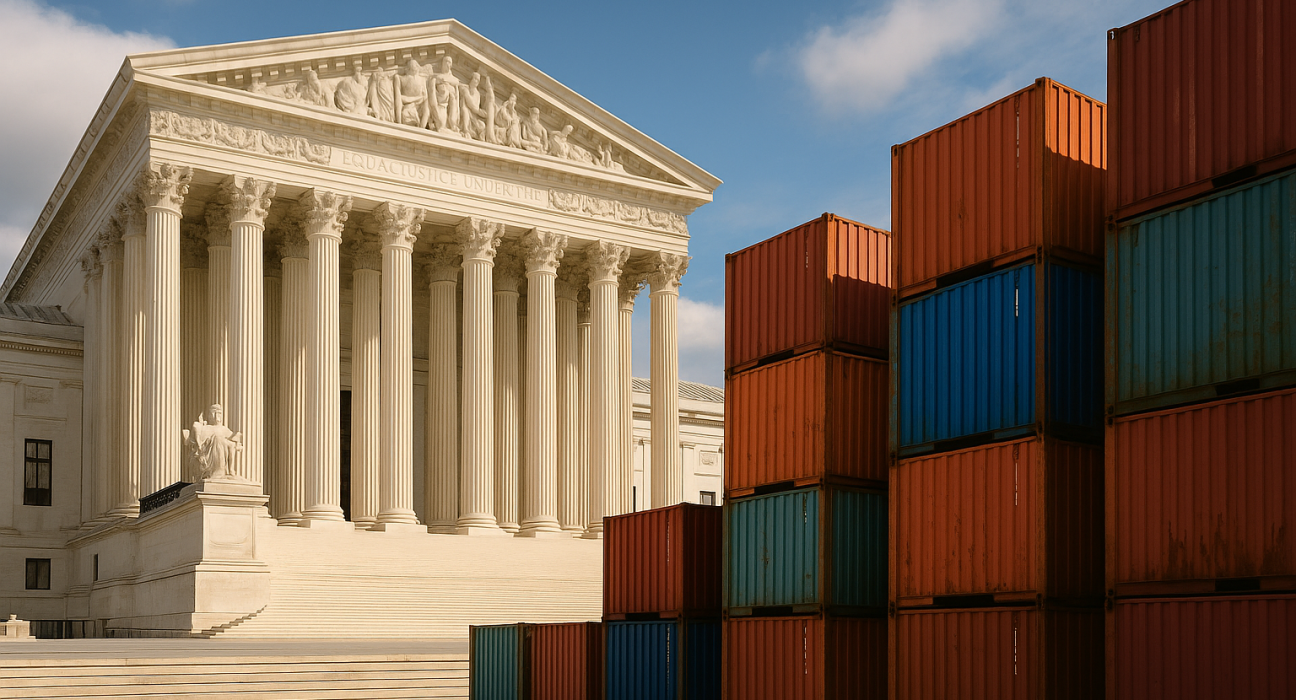The U.S. Supreme Court on Wednesday heard arguments in a landmark case that could reshape the balance of power between Congress and the presidency — and potentially alter the foundation of U.S. trade policy. The case focuses on whether President Donald Trump exceeded his authority by unilaterally imposing sweeping tariffs using emergency powers under the International Emergency Economic Powers Act (IEEPA) of 1977.
The Constitution grants Congress the power to levy tariffs and taxes. However, Trump’s legal team argues that the IEEPA gives the president discretion to regulate imports during national emergencies, including the ability to adjust tariffs. They contend that these powers are essential to respond rapidly to global crises and protect national interests — particularly when tied to foreign policy or border security.
At issue are two major sets of tariffs: one targeting imports from Canada, China, and Mexico, enacted after Trump declared a national emergency over drug trafficking; and another, broader measure imposing “reciprocal tariffs” on most U.S. trading partners, announced in April 2025. Together, these tariffs have reshaped major industries and generated roughly $195 billion in revenue as of September, but they have also disrupted supply chains and drawn international criticism.
The plaintiffs — a coalition of small businesses and Democratic-led states — argue that Trump’s use of emergency authority is unconstitutional and economically harmful. They claim that the IEEPA never mentions tariffs and that no president has previously invoked it to impose them. They further contend that Trump’s interpretation of the law allows the executive branch to assume Congress’s taxation powers, violating the nondelegation doctrine, which limits how much authority Congress can transfer to the president.
Lower courts largely sided with the challengers, finding the tariffs to be an overreach. Several federal judges ruled that while the president can regulate trade in emergencies, using that power to impose or modify taxes without congressional approval goes too far.
However, the Supreme Court — now featuring a 6–3 conservative majority, with three justices appointed by Trump — has historically shown deference to executive power in national security and foreign affairs. Trump and his supporters have framed the case as a defining test of presidential authority, with Trump declaring it “one of the most important in the country’s history.”
The challengers, meanwhile, are urging the justices to apply the same reasoning used when the Court struck down President Joe Biden’s student loan forgiveness plan, which invoked emergency authority to cancel $400 billion in debt. Under the “major questions doctrine,” the Court held that laws with major economic consequences require explicit congressional authorization.
Projections
- If the Court upholds Trump’s use of IEEPA, presidents could gain unprecedented flexibility to impose tariffs unilaterally, reshaping trade policy and further concentrating power in the executive branch. This could unsettle global markets, as future administrations might adjust tariffs without legislative oversight.
- If the Court strikes it down, it would reaffirm Congress’s control over taxation and trade, curbing executive discretion. The government could face logistical challenges in refunding collected tariffs and significant pressure to renegotiate affected trade deals.
- Broader implications: The ruling could redefine how emergency powers are used — affecting future presidents’ ability to address crises in areas like cybersecurity, energy, or pandemics.
- Political impact: A decision limiting Trump’s authority could fuel his campaign narrative of judicial overreach, while a ruling in his favor could embolden future executives to test the limits of statutory authority.
References
- Associated Press: “Trump’s tariff powers face Supreme Court test in pivotal case on executive authority.”
- Reuters: “Supreme Court weighs Trump’s emergency powers to impose tariffs.”
- Washington Post: “Court case could reshape presidential control over trade.”
- Politico: “Trump’s emergency tariff powers spark constitutional showdown.”
- CNBC: “Tariffs, taxes, and the limits of executive authority.”
- Congressional Research Service: “International Emergency Economic Powers Act (IEEPA): Overview and Recent Uses.”
